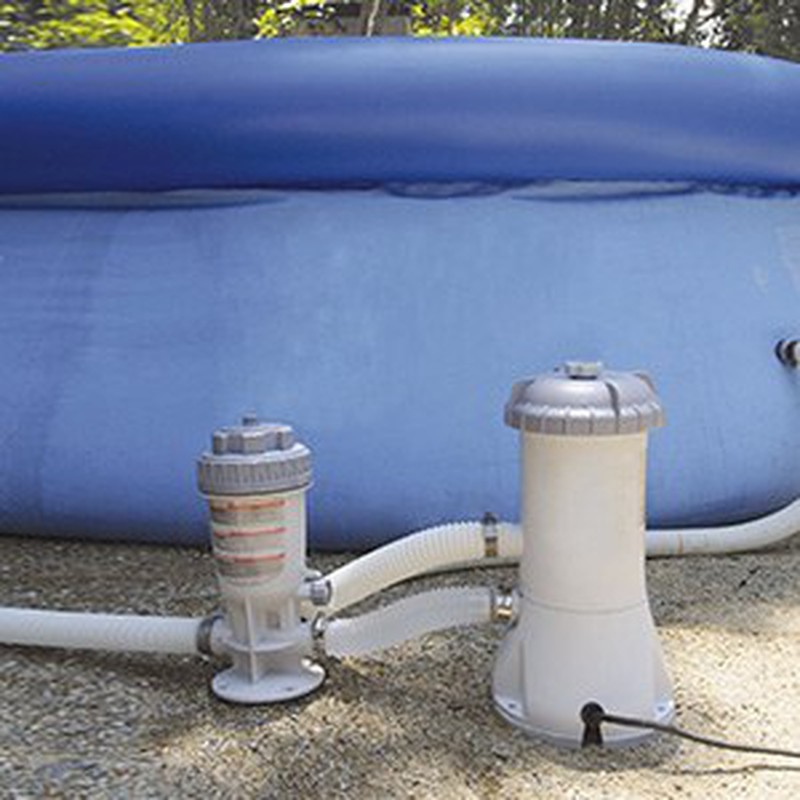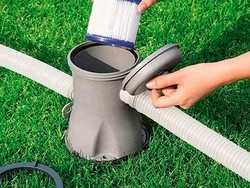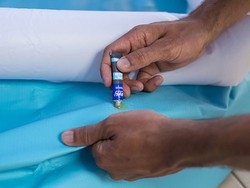Best Choice: Cartridge or Sand Filter?
The pool is an ideal alternative to cool off, relax and entertain yourself during the summer season. That is why it is so important that it be well maintained. It's not just about looking clean, it's actually clean. In order to achieve this goal, a very important element is needed: the filter. It is in charge of retaining all the impurity particles and thus preserving the water as clean as possible. This type of device can use different materials as filtering agents, so it will not always perform the same way. There are different variables that must be analyzed. From PoolFunStore tips, we will determine which filter best suits your pool: cartridge or sand filter… .. ready?

Sand filter
Sand purifiers are currently the most used to keep swimming pools totally clean. They have a sand tank through which the water circulates. All residues and impurities that travel in the liquid are retained in it. Among the benefits of using this type of filtering system, the following can be highlighted:
- It is very effective in its work and can be used in all types of pools, guaranteeing excellent performance.
- Its durability is very high. It can be between 7 and 10 years.
- Its filtration capacity is much greater than that of cartridge filters.
- Allows the use of flocculants.
- It is ideal for the maintenance of medium and large pools. You only need to choose the diameter of the filter, in order to have the hourly filtering that best suits your needs.
It is important to note that this type of appliance requires constant maintenance. It is recommended that at least 2 times per week its operation is verified and, if necessary, it is cleaned accordingly.
Cartridge filter
Cartridge scrubbers have been around for a long time, as they are older than sand scrubbers. They are cylindrical in shape and can be made of plastic or ABS. They have a paper cartridge inside. When the water passes through it, it retains the dirt and impurities found in the liquid. They offer a set of benefits that are detailed below:
- They have a high level of effectiveness, only in small pools.
- They are a much cheaper alternative than sand filters.
- Very easy to install.
- They require minimal maintenance. Cleaning the cartridge once a month will suffice.
- They are ideal for low flow inflatable and tubular pools.
Which type of filter is the best?
Now that you know the advantages that each of these filters offers, the important question is: Which is better: sand or cartridge filter? When analyzing the benefits of both, the clear winner is the sand filter, since regardless of the pool in which it is used, it will perform very well. In this regard, the cartridge filter is a bit more limited, since if your challenge is a medium or large pool, the water may not be as clean as you want.
Despite knowing that the sand filter is better, it is also important to understand that not all people have the same needs, nor the same budget. In these cases it all comes down to purchasing the product that suits you best.
If you have a small pool and your budget is somewhat limited, then a cartridge filter should be enough for you. If, on the other hand, you have a medium or large pool that is the center of attraction for your friends and family during the summer season, then a sand filter is the ideal option.
If you decide to buy a sand purifier, then you just need to choose the model that has the correct filtration capacity. Finding it out is a very simple process: You must divide the total capacity of your pool by 7, which is the average number of hours needed to properly filter the water. The result you get is the l / h capacity that you need your device to filter.





Our customers trust us
Opinions of our clients
Receive our news